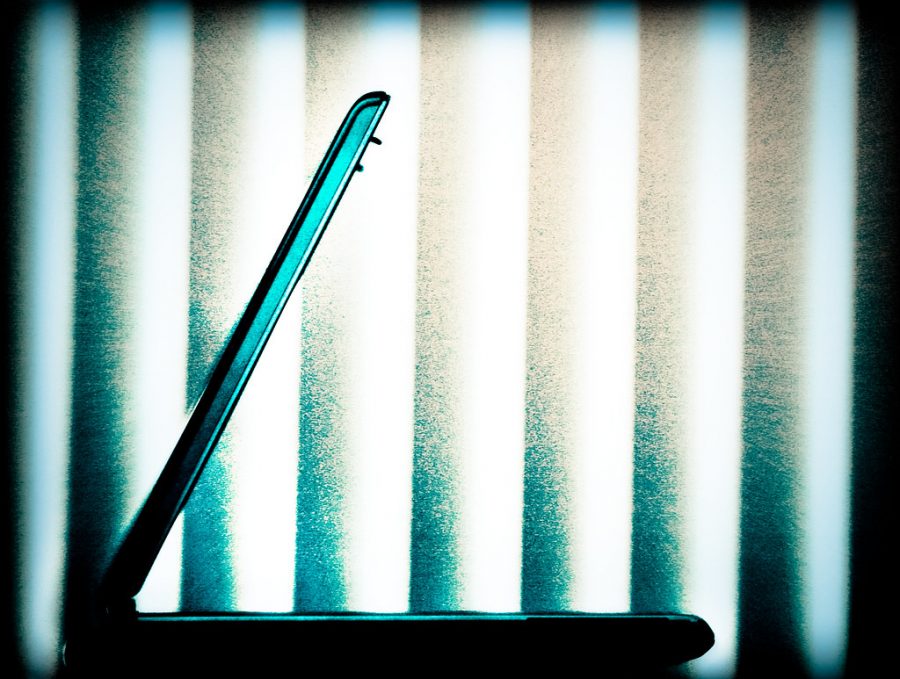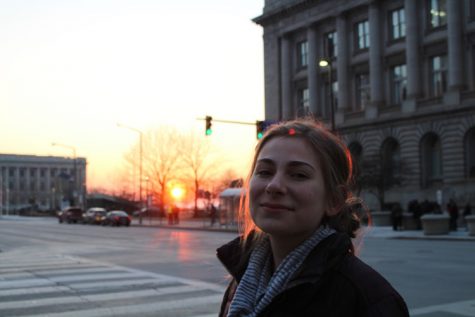Virtual funeral and sensory memory loss
Editor in Chief Sophia Maltese reflects on life in the era of Zoom.
Jan 29, 2021
We buried both of my grandparents this week. They died from COVID-19 just 18 hours apart, and their deaths somehow managed to be tragic and beautiful at the same time.
Pete and Dolores Maltese were married for 63 years. They met at a concert when my grandma was a fresh 18-years-old and my grandpa was a scrappy, angry kid from Brooklyn with a lot on his mind. Pete loved to make things. He held two patents on fishing equipment, had his own televised fishing show and even started a screen-printing business. Dolores was adaptable. She helped wherever she could and calmed his crassness to a socially acceptable level. I can’t remember a time when I saw them apart. They even shared a cell phone.
Though this column is not meant to eulogize them, it’s difficult to approach my thesis without first recognizing the stories it involves. Those stories are of my grandparents, my friends, my school and me.
For the funeral service, many were uncomfortable attending in-person. So, we coordinated a virtual viewing where friends and family could Zoom in, watch a short video, be taken around on an iPad to say hello to people, then view my grandparents and say a short prayer.
Zoom and other video conferencing services like it have become the containers of our world. It’s how we pray, learn, celebrate holidays, socialize, date and even bury our dead.
In communication, there is a concept called telepresence –– the feeling we experience when looking at a screen. It’s like we’re not looking at the screen but through the screen. We are in the scene before us, even though it is a digitally rendered collection of pixels. The tangible world surrounding us fades away, and we are immersed in emotionally meaningful digital content.
This experience begs a natural extension — will there be a time when we experience the world completely virtually? When we use VR to walk through Paris or between the pyramids or surrounded by great art? Countless science fiction books have broached the subject, and they all seem to land on an instinctual conclusion — it’s just not the same.
Why is VR lacking but a virtual funeral is fulfilling? Do we have to be present in the world to experience it? What makes something real?
I have a lot of questions but not many answers.
The things I am able to imagine feel more real over Zoom than those I have never experienced. For example, I am fulfilled when FaceTiming my friends because I can imagine their faces clearly even if the picture is grainy. I can smell the distinct warmth of their house and picture their family in the kitchen below gathered around the table eating potato chips. But at my internship, I have no in-person experience. When my brain attempts to retrieve sensory information, I come up blank.
These blank spots in my experience create feelings of dissatisfaction. Some of these blank spots include social cues like eye contact and hand movements, the absence of which contributes to feelings of fatigue and general dissatisfaction.
There’s a reason why a virtual jog through the Swedish mountains just doesn’t cut it, and there’s a reason why seeing real-life familiar faces and places leads to a higher emotional reward.
Despite Zoom’s enormous benefits, I can’t help but share the same feelings of tragedy and beauty that I have towards my grandparents’ passing. Zoom has enabled some form of connection, but as days pass, each person becomes increasingly foreign, and those cherished sights, smells and tastes are beginning to fade.













